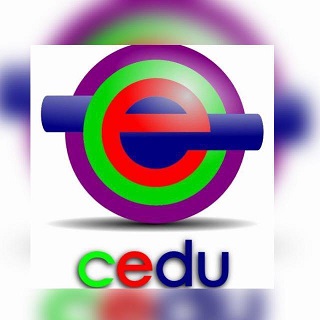PEDAGOGICAL GUIDANCE GUIDE FOR TEACHING PORTUGUESE IN BASIC EDUCATION: PROPOSALS WITH GAMIFIED MODELS, VIRTUAL PLATFORMS AND DIGITAL APPLICATIONS
Keywords:
Digital games, Gamification, Portuguese languageAbstract
This work presents a pedagogical orientation guide for the teaching of the Portuguese language from gamified solutions, virtual platforms and digital applications. This document is linked to research developed in the Master's course of the Stricto Sensu Graduate Program for Teacher Training and Interdisciplinary Practices (PPGFPPI) at the University of Pernambuco (UPE) Campus Petrolina. The objective is to contribute to the pedagogical training of teachers regarding active methodologies, which in this material are composed of digital games and gamification strategies. This educational product is configured as an E-book built from the needs presented by Portuguese Language teachers in the locus of our research, as a way of suggesting the use of games and their strategies in more engaged and meaningful learning processes. It is noteworthy that these proposals should not be strictly followed by teachers, but need to be evaluated based on their didactic needs.
Downloads
References
ALVES, Flora. Gamification: como criar experiências de aprendizagem engajadoras: um guia completo – do conceito à prática. 2. ed., rev. e ampl. São Paulo: DVS Editora. 2015. 172 p.
BRASIL. Ministério da Educação. Base Nacional Comum Curricular: Educação é a base. Brasília: Ministério da Educação, 2018. Disponível em: http://basenacionalcomum.mec.gov.br/images/BNCC_EI_EF_110518_versaofinal_site.pdf. Acesso em: 28 fev. 2022.
BURKE, Brian. Gamificar: como a gamificação motiva as pessoas a fazerem coisas extraordinárias. Tradução: Sieben Gruppe. São Paulo: DVS Editora, 2015. 166 p. Título original: Gamify: how gamification motives people to do extraordinary things.
HUIZINGA, Johan. Homo Ludens. Tradução: João Paulo Monteiro. 4. ed. São Paulo: Editora Perspectiva S.A., 2000. 162 p. Título original: Homo Ludens - vom Unprung der Kultur im Spiel. Digital Source.
MORAN, José Manuel, MASETTO Marcos T., BEHRENS, Marilda Aparecida. Novas tecnologias e mediação pedagógica. São Paulo: Papirus, 2000. 175 p - (Coleção Papirus Educação).
PERRENOUD, Philippe. Dez novas competências para ensinar. Porto Alegre: Artes Médicas Sul, 2000. 181 p.
PRENSKY, Marc. Nativos Digitais, Imigrantes Digitais. NCB University Press, Vol. 9 No. 5, Outubro 2001. Tradução: Roberta de Moraes Jesus de Souza. Acesso em: Ago/2014 Disponível em: <http://pt.scribd.com/doc/55575941/Nativos-Digitais-Imigrantes-Digitais-Prensky>
Downloads
Published
How to Cite
Issue
Section
License
Copyright
The submission of originals to Cenas Educacionais (Educational Scenes - CEDU) implies the transfer, by the authors, of the publication rights. The copyright for the manuscripts published in this journal is the author(s), with CEDU rights over the first publication. Authors(s) may only use the same results in other publications by explicitly indicating CEDU as the means of the original publication.
Creative Commons License
Except where otherwise specified, the terms of a Creative Commons Attribution-ShareAlike 4.0 International License license apply to the material published in this journal, which allows unrestricted use, distribution and reproduction in any medium provided the original publication is correctly cited.






 This work is licensed with a License
This work is licensed with a License 